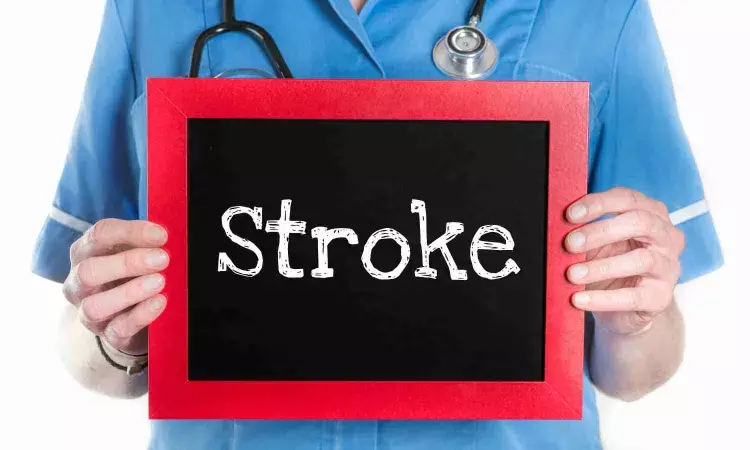- Home
- Medical news & Guidelines
- Anesthesiology
- Cardiology and CTVS
- Critical Care
- Dentistry
- Dermatology
- Diabetes and Endocrinology
- ENT
- Gastroenterology
- Medicine
- Nephrology
- Neurology
- Obstretics-Gynaecology
- Oncology
- Ophthalmology
- Orthopaedics
- Pediatrics-Neonatology
- Psychiatry
- Pulmonology
- Radiology
- Surgery
- Urology
- Laboratory Medicine
- Diet
- Nursing
- Paramedical
- Physiotherapy
- Health news
- Fact Check
- Bone Health Fact Check
- Brain Health Fact Check
- Cancer Related Fact Check
- Child Care Fact Check
- Dental and oral health fact check
- Diabetes and metabolic health fact check
- Diet and Nutrition Fact Check
- Eye and ENT Care Fact Check
- Fitness fact check
- Gut health fact check
- Heart health fact check
- Kidney health fact check
- Medical education fact check
- Men's health fact check
- Respiratory fact check
- Skin and hair care fact check
- Vaccine and Immunization fact check
- Women's health fact check
- AYUSH
- State News
- Andaman and Nicobar Islands
- Andhra Pradesh
- Arunachal Pradesh
- Assam
- Bihar
- Chandigarh
- Chattisgarh
- Dadra and Nagar Haveli
- Daman and Diu
- Delhi
- Goa
- Gujarat
- Haryana
- Himachal Pradesh
- Jammu & Kashmir
- Jharkhand
- Karnataka
- Kerala
- Ladakh
- Lakshadweep
- Madhya Pradesh
- Maharashtra
- Manipur
- Meghalaya
- Mizoram
- Nagaland
- Odisha
- Puducherry
- Punjab
- Rajasthan
- Sikkim
- Tamil Nadu
- Telangana
- Tripura
- Uttar Pradesh
- Uttrakhand
- West Bengal
- Medical Education
- Industry
Adjunctive Intra-Arterial Thrombolytics Show Limited Benefits in Stroke Patients Undergoing Mechanical Thrombectomy: JAMA

Two randomized trials have shown that the use of adjunctive intra-arterial thrombolytics does not significantly improve outcomes for stroke patients undergoing mechanical thrombectomy.
The impact of adjunctive intra-arterial tenecteplase administration following near-complete to complete reperfusion by endovascular thrombectomy (EVT) for acute ischemic stroke is unknown.
A study was done to assess the efficacy and adverse events of adjunctive intra-arterial tenecteplase in patients with large vessel occlusion stroke who had achieved near-complete to complete reperfusion (defined as a score on the expanded Thrombolysis in Cerebral Infarction [eTICI] scale of 2c to 3) after EVT.
Investigator-initiated, randomized, open-label, blinded outcome assessment trial implemented at 34 hospitals in China among 540 patients with stroke due to proximal intracranial large vessel occlusion within 24 hours of the time they were last known to be well, with an eTICI score of 2c to 3 after EVT, and without prior intravenous thrombolysis. Recruitment took place between October 26, 2022, and March 1, 2024, with final follow-up on June 3, 2024.
The primary efficacy outcome was freedom from disability, defined as a score of 0 or 1 on the modified Rankin Scale (range, 0 [no symptoms] to 6 [death]) at 90 days. The primary safety outcomes were death at 90 days and symptomatic intracranial haemorrhage within 48 hours. Results A total of 539 participants (99.8%) completed the trial (median age, 69 years; 221 female [40.9%]). The proportion with a modified Rankin Scale score of 0 or 1 at 90 days was 49.1% (132/269) in the intra-arterial tenecteplase group and 44.1% (119/270) in the control group (adjusted risk ratio, 1.15 [95% CI, 0.97-1.36]; P = .11). Ninety-day mortality was 16.0% and 19.3% (adjusted hazard ratio, 0.75 [95% CI, 0.50-1.13]; P = .16), respectively.
The proportions of symptomatic intracranial hemorrhage were 6.3% and 4.4% (adjusted risk ratio, 1.43 [95% CI, 0.68-2.99]; P = .35), respectively. In patients with acute ischemic stroke due to large vessel occlusion presenting within 24 hours of time last known to be well and who had achieved near-complete to complete reperfusion after EVT, adjunctive intra-arterial tenecteplase did not significantly increase the likelihood of freedom from disability at 90 days.
Reference:
Huang J, Yang J, Liu C, et al. Intra-Arterial Tenecteplase Following Endovascular Reperfusion for Large Vessel Occlusion Acute Ischemic Stroke: The POST-TNK Randomized Clinical Trial. JAMA. Published online January 13, 2025. doi:10.1001/jama.2024.23466
Dr. Shravani Dali has completed her BDS from Pravara institute of medical sciences, loni. Following which she extensively worked in the healthcare sector for 2+ years. She has been actively involved in writing blogs in field of health and wellness. Currently she is pursuing her Masters of public health-health administration from Tata institute of social sciences. She can be contacted at editorial@medicaldialogues.in.
Dr Kamal Kant Kohli-MBBS, DTCD- a chest specialist with more than 30 years of practice and a flair for writing clinical articles, Dr Kamal Kant Kohli joined Medical Dialogues as a Chief Editor of Medical News. Besides writing articles, as an editor, he proofreads and verifies all the medical content published on Medical Dialogues including those coming from journals, studies,medical conferences,guidelines etc. Email: drkohli@medicaldialogues.in. Contact no. 011-43720751


